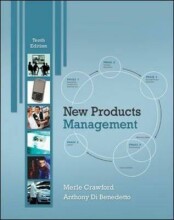Summary: Ethical Criteria Of Risk Acceptance
- This + 400k other summaries
- A unique study and practice tool
- Never study anything twice again
- Get the grades you hope for
- 100% sure, 100% understanding
Read the summary and the most important questions on Ethical criteria of risk acceptance
-
2 The problem of appraising mixtures
This is a preview. There are 4 more flashcards available for chapter 2
Show more cards here -
What does the Moral appraisal mean?
covers a wide range of assignments of moral status, such as declarations that something is forbidden, permitted, morally required, good, bad, better than something else to which it is compared, etc. -
What does the term "value carriers" refer to?
all entities that can be assigned (moral) value, including in particular human actions and the outcomes of human actions. -
3 Utilitarianism
This is a preview. There are 3 more flashcards available for chapter 3
Show more cards here -
What is the mixture appraisal problem for utilitarianism?
Given the utilities that a utilitarian theory assigns to (potential) outcomes with well-determined properties, what utilities does (a generalized version of) this theory assign to mixtures of such outcomes? -
What is the name for the answer on the MAP for utilitarianism?
Actualism: The utility of a mixture of potential outcomes is equal to the utility of the outcome that actually materializes. -
What is expected utility maximization?
The utility of a probabilistic mixture of potential outcomes is equal to the probability-weighted average of the utilities of these outcomes. -
What are two problems with the expected utility maximization framework?
- expected utility maximization does not allow for risk-averse or cautious decision-making
- expected utility maximization disallows the influence of person-related moral reasons
- expected utility maximization does not allow for risk-averse or cautious decision-making
-
What is the maximin rule?
Contrary to expected utility maximization, it does not make use of probabilities, and is therefore applicable to the general as well as to the probabilistic version of the mixture appraisal problem. In order to apply the maximin rule we identify, for each alternative action, its security level, the worst possible outcome that it can give rise to. An alternative with a maximal security level is chosen -
What are disadvantages of the maximin rule?
- the maximin rule is extremely sensitive to how we choose to describe the decision problem. , it does not help us very much in dealing with an as yet unformalized problem
- the maximin rule requires an extreme degree of cautiousness that does not seem to be in all situations morally defensible.
- the maximin rule is extremely sensitive to how we choose to describe the decision problem. , it does not help us very much in dealing with an as yet unformalized problem
-
4 Deontological and right-based theories
This is a preview. There are 3 more flashcards available for chapter 4
Show more cards here -
How is the mixture appraisal problem for deontological/rights-based moral theories defined?
Given the duties (rights) that a deontological (rights-based) moral theory assigns with respect to actions with well determined properties, what duties/rights does (a generalized version of) this theory assign with respect to mixtures of such actions? -
What is the probabilistic extension for deontological theories?
If it is morally prohibited to perform a certain action, then this prohibition extends to all mixtures in which this action has nonzero probability.
- Higher grades + faster learning
- Never study anything twice
- 100% sure, 100% understanding































